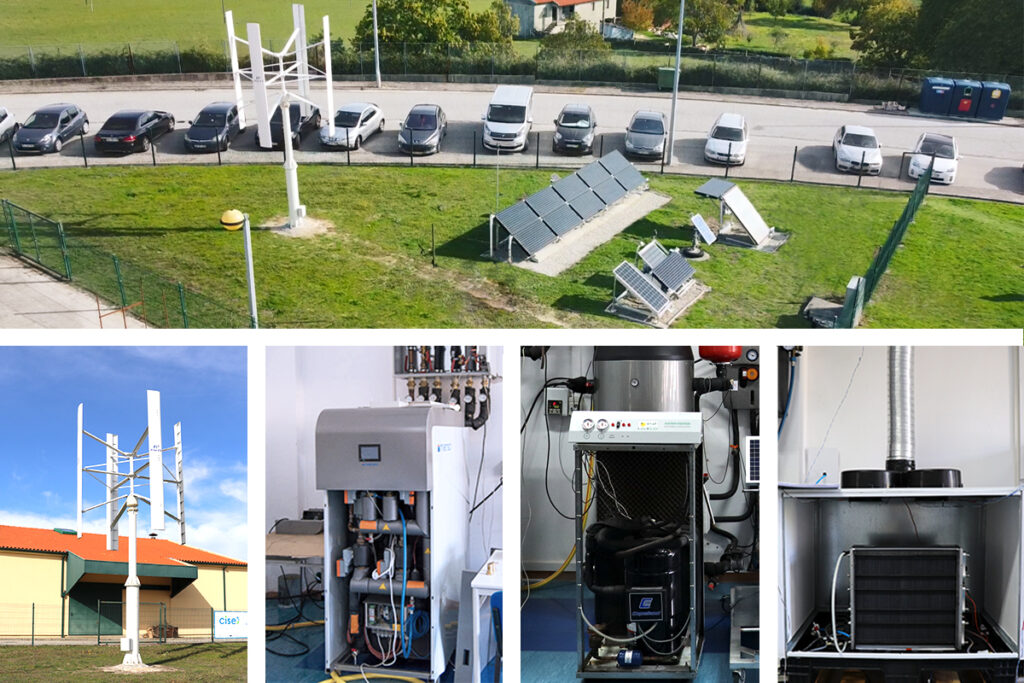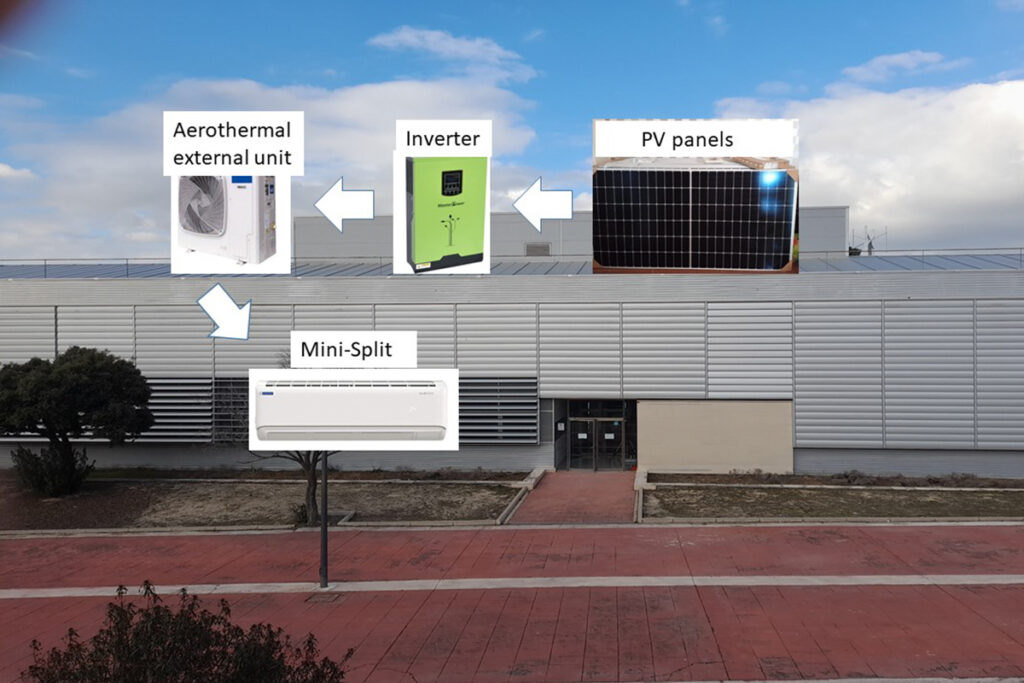RENEWABLE ENERGY CONVERSION TECHNOLOGIES IN GUARDA AND MADRID
The CISE-UBI and the CeDInt-UPM worked jointly to develop and analyse renewable energy conversion technologies suitable for hybrid energy networks, i.e., energy systems capable of exploiting and optimising the use of multiple energy vectors (electrical, thermal and gas). To better understand these new energy structures, it is intended to study the complex interactions that take place in hybrid energy networks, where multiple energy vectors interact and co-exist. It is expected to develop and implement new energy management strategies, suitable to optimise the performance of the hybrid energy system.
In the framework of the activity, both partners aim to develop advanced demonstrators of hybrid energy systems, improving the features of previously established pilot plants which integrate multiple renewable energy sources and energy storage technologies. Both demonstrators focus on hybrid energy networks, but are complementary, in the sense that each one of them adopts a particular architecture, relying on distinct state-of-the-art renewable energy, energy storage, and management technologies.
Cooperation between the two partners involved in the activity aims at taking advantage of their complementary consolidated knowledge about relevant topics to the field of hybrid energy networks. Such cooperation is embodied through exchange of know-how between partners.
The activities carried out on each demonstrator included the instrumentation, testing, and optimisation of solutions for the three building blocks of any energy system – energy sources, energy storage and loads.

CISE-UBI has developed simulation models and experimental studies involving some of the main technologies to be adopted: thermal-photovoltaic panels (PVTs), fuel cell, heat pump, batteries, supercapacitors, and adsorption chiller. These components were then integrated into the following functional units: trigeneration system, wind generation system, hydrogen system and heat pump.

UPM acquired the equipment for the integration of renewable energies technologies into the energy system. It consists of an aerothermal system powered by PV panels, which supplies the building HVAC installation. The feasibility of the integration and replication of the different configurations is being evaluated.
The completion of the activity shall lead to the successful implementation of living labs/pilot plants dedicated to the demonstration of hybrid energy networks, relying entirely on renewable energy sources as compelling alternatives to conventional energy networks operated in a decoupled fashion.
